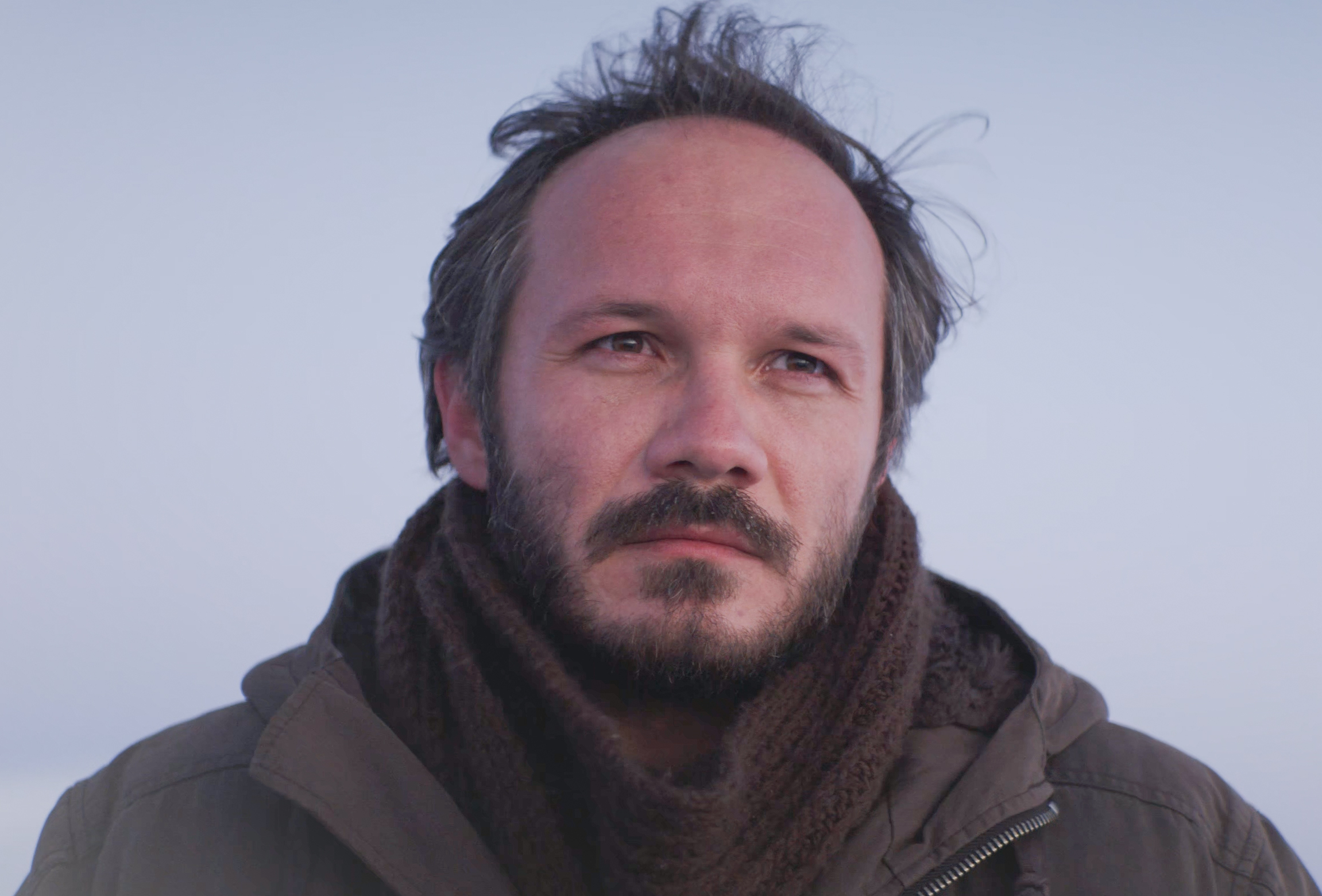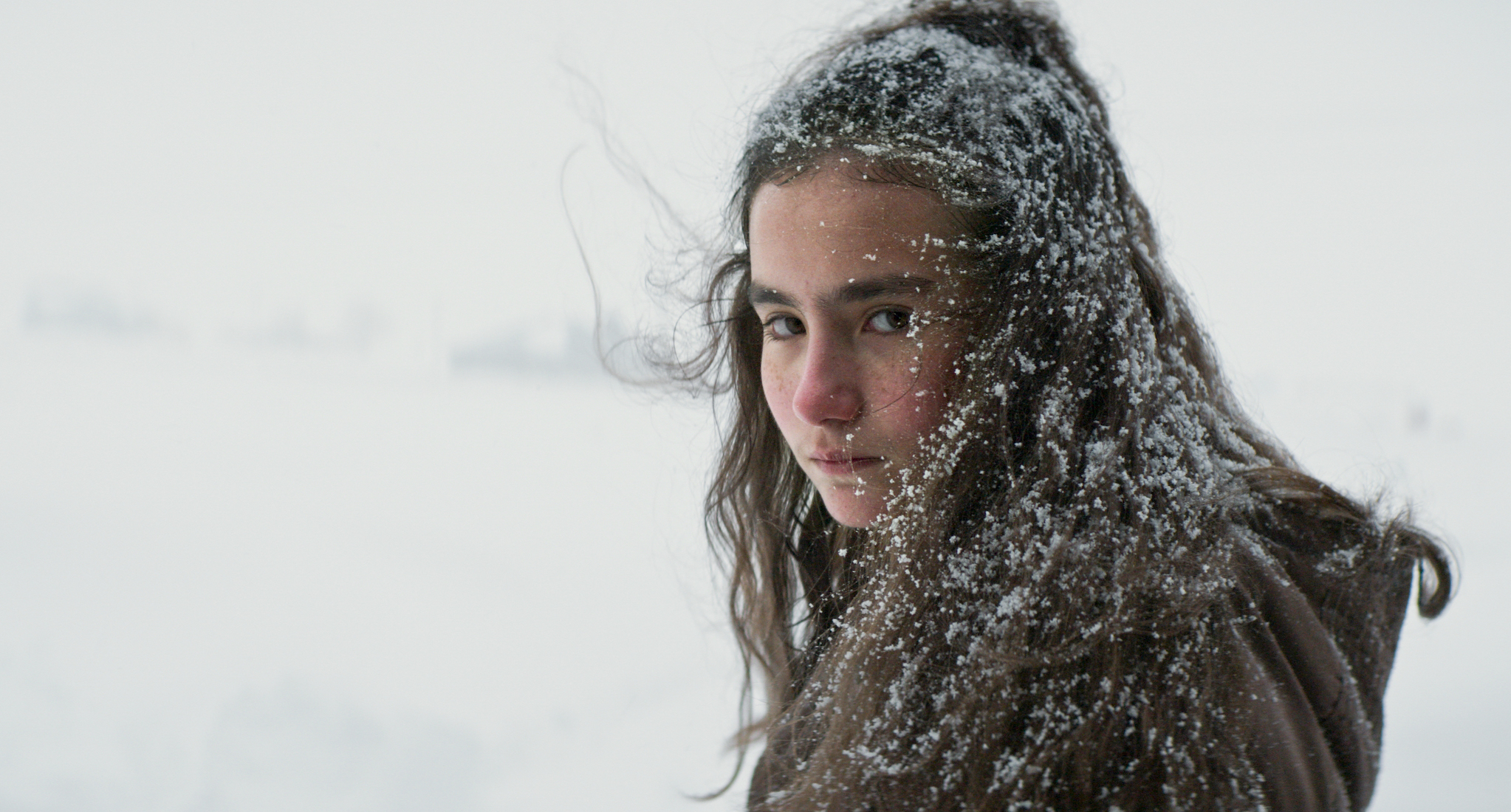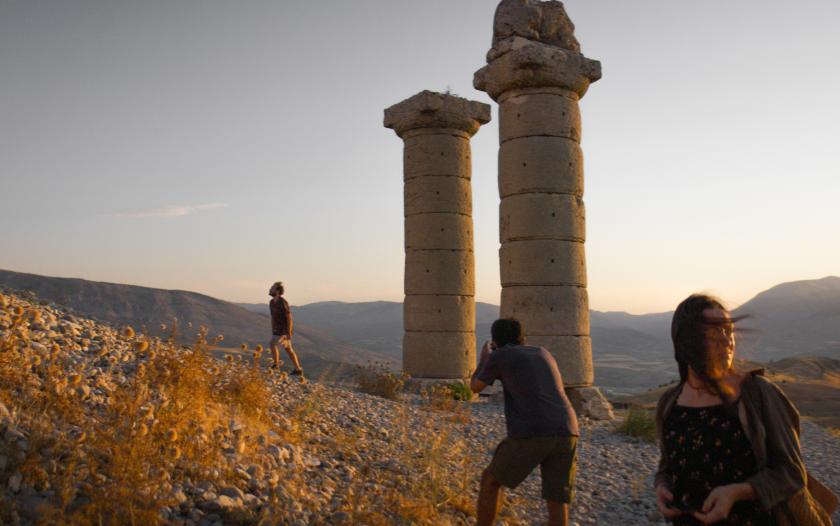Nuri Bilge Ceylan’s latest is a test of stamina: a 3hr 15min study of a man paralysed by negative thinking. It also contains striking freeze-framed portraits of people and places that you want to pause and look at even longer than the editing allows, so beautiful are they.
These shots presumably represent the photography of Samet (Deniz Céliloglu), a disgruntled late-thirtyish art teacher doing what he hopes will be the last year of his training in a remote part of eastern Anatolia. He yearns to return to a big city, preferably Istanbul. When we first see him, he is a very small figure in a whiteout landscape, the snow still falling as he trudges towards the camera, the blanketing whiteness suggesting what he later calls "the weariness of hope". At the end of the film, he is walking again, this time up a sunlit hill covered in dry grasses, his teacher friend Kenan (Musab Ekici) filming him as he goes and his transfer out of the school secured.
What happens in between to Samet is the stuff of two parallel novels, probably 19th century Russian novels. In one he goes through tussles with officialdom when he and Kenan are the subject of complaints from anonymous students of inappropriate touching in class. In the other, his nihilism and lack of drive are challenged by encounters with more radical people: a politically engaged teacher, Nuray (Merve Dizdar), who has lost a leg in a suicide bombing; a local known as "the terrorist”, with whom he has whisky-fuelled discussions at the local shopkeeper’s.
These two strands seem to co-exist without really intersecting, except to shed light on Samet. But ultimately that is Ceylan’s great achievement here, and presumably his main aim: a 360-degree portrait of his anti-hero, warts and all.
 There is a sadness to Samet, a world-weariness at odds with his relative youthfulness. But we see how this tips over into self-deception and rage. As Nuray astutely diagnoses, he is trying to blame the poverty of the people around him, the narrowness of their rural lives, for his own inability to be happy, as if all that would change if he moved to Istanbul. He doesn’t see that he would take his unhappiness with him.
There is a sadness to Samet, a world-weariness at odds with his relative youthfulness. But we see how this tips over into self-deception and rage. As Nuray astutely diagnoses, he is trying to blame the poverty of the people around him, the narrowness of their rural lives, for his own inability to be happy, as if all that would change if he moved to Istanbul. He doesn’t see that he would take his unhappiness with him.
Worse, Samet is emotionally dishonest, breathtakingly mendacious at times about his true feelings and motives. He risks key friendships because of this, as well as his reputation and his job.
All these different facets come into play in a climactic scene that’s like something out of Before Sunrise rewritten by Dostoevsky. It’s page after page of punchy dialogue between Nuray and Samet, who has engineered to have dinner with her alone. She challenges his cynicism, his inability to back his ideas with action except for running away. If we all leave, who will be left, she asks him. Nuray is his diametric opposite, an activist and emotionally honest; she can see through him, and dislikes a lot of what she finds, but there is just enough that’s sympathetic about him for her not to reject him.
It’s the same for the viewer: a push-pull at every turn, trying to fathom Samet. He moves from big-hearted man who wants to save the area’s starving stray dogs and secretively hands out free winter clothes to his pupils to being a vindictive teacher shouting at his class while, ho-ho, trying to teach them about perspective. He can melt and soften around Nuray and one favoured pupil, lively Sevim (Ece Bagci, pictured below), to whom we see him giving a present — a pocket mirror — at the start of the film, but he also treats her to his cruellest behaviour and nastiest judgments about the miserable nature of her future among the potato-growers. We are working out who he is at the same time he himself is.
Finally, the two narrative strands nudge up against each other and, true to the usual symbolism of hills, as he climbs up the sunny slope at the end Samet reveals his recent experiences have led him to a kind of epiphany; the meaning of the film’s title is spelled out and there is a kind of resolution. But it’s not exactly a happy ending. We leave Samet with a rueful face, surveying the landscape he is about to turn his back on, realising the people there are not "worthless" but still about to leave them behind.
 Ceylan and his co-writers wrote, gulp, their longest ever script for this project, and apparently he filmed it all, then reduced it to its current length in the editing suite. One odd jump remains: after Samet and Kenan have been reprimanded by the principal, the next time we see Samet he seems to have returned from an illness that required him to be on a drip. It's never mentioned again.
Ceylan and his co-writers wrote, gulp, their longest ever script for this project, and apparently he filmed it all, then reduced it to its current length in the editing suite. One odd jump remains: after Samet and Kenan have been reprimanded by the principal, the next time we see Samet he seems to have returned from an illness that required him to be on a drip. It's never mentioned again.
The epic length of the film for what’s essentially a chamber piece isn't a problem because the twists and turns of Samet’s personality are compelling. What is trickier is what outsiders should make of the politics of the film. Beautiful snowcapped mountains are not the only thing in the background: there’s also sporadic machinegun fire, which goes unexplained. An army exercise, an encounter with terrorists? The running of Samet’s school has an autocratic flavour, a place of rules and prejudices, where classroom searches are conducted for items such as cosmetics, hair ornaments and lighters. Nuray doesn't want her neighbours to see her entertaininng a man alone at night. Kenan, who seems to be from an Alawi village, fears he is being discriminated against. "The terrorist" is a mini-study of how one evolves: jobless and disaffected, his father taken away in the night and never seen again. All these elements nag away at the edges of the narrative.
But they don't get in the way of its main sweep. Samet's village is clearly a sign of a social order in trouble, as is Samet: a teacher of talent and intelligence cooped up in a school where his strengths are curdling. Céliloglu turns in a riveting performance, his eyes gentle in his soft face one minute, hooded and menacing the next, that is hard to dislodge. Paradoxically, the area he called a tip and the "uncivilised" locals he despised — shepherds, soldiers, skinny kids with their friends — will stay with you too via those stunning photographs of them, long after he has moved on.















Add comment